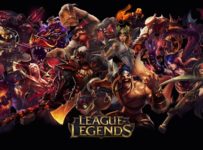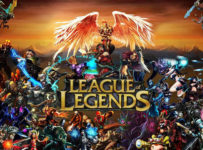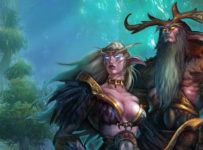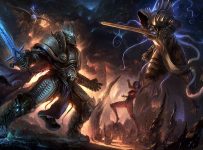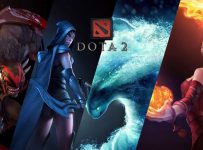Nearly everyone in the world has, at some point or another, heard the name League of Legends. For years, it was the most played game in the world, and for good reason. The team at Riot Games, the creators of League of Legends, was made up of some of the world’s best game development and artistic design talent.
The history of League of Legends, though, is more than just the history of a single game. The history of League of Legends is the history of an entire genre; one that would prove to change the world of gaming forever.
League of Legends would have never seen the success it did if not for another world-famous game by the name of Warcraft III. Warcraft III was famous in its own right, being one of the most critically-acclaimed strategy games ever made, but one of the player-made custom game modes, known at the time as “Defense of the Ancients,” rose to fame almost independent of the game whose tools were used to create it.
Defense of the Ancients was an evolution of a single element of Warcraft III; players controlled a single character that evolved throughout the course of the game, gaining abilities and weapons that made them more powerful against other players. While in Warcraft III heroes were only a single part of the gameplay of a match, Defense of the Ancients made them the focus of each match of play. Thus, the earliest standalone form of the “MOBA” was born.
MOBA stands for Multiplayer Online Battle Arena, and it’s a genre that is more or less defined by the foundations that DoTA laid out back when it was just a sub-game within Warcraft III. While there was another popular game mode in an earlier game (Starcraft’s Aeon of Strife custom mode) that featured many similar elements to what is now recognized as a MoBA, it never reached the level of popularity or refinement that DoTA later would.
Three “lanes” with continuously respawning computer-controlled soldiers, defensive towers set at regular intervals, and shortcuts between each of the lanes are featured in nearly every single MoBA-style game on the market, including League of Legends, and these were the characteristic feature of the DoTA custom game type.
What made League of Legends so special was that it was a fresh start; it wasn’t built in Warcraft III’s engine, didn’t utilize any of Warcraft III’s premade assets, and had its own unique approach to the design of the “DoTA-style” gametype.
A sizeable number of members of the DoTA Allstars team were actually the founders of League of Legends, and they were committed to not only evolving the spirit of the MOBA but also to distinguishing their game from the custom gametype they’d worked on so long.
Warcraft III’s custom game engine was creative for what it was, but it was also limiting. The League of Legends team could never have made their unique vision with re-used or partially-modified assets from Warcraft III, no matter how good Warcraft III had been.
The birth of League of Legends was something like the rise of a phoenix; League of Legends came from a game that was remarkably popular, but stagnating stylistically, and became a free-to-play, innovative, and ambitious title that had its own look and feel. The team knew they couldn’t stay small, though.
They harnessed talent from all over the globe, turning the interest and passion of the Allstars community into an updraft that allowed for the launch of a vibrant e-sports scene, global popularity, and the interest of thousands of players who had never come into contact with DoTA at all.
League of Legends still thrives to this very day, being one of the most watched games on Twitch.tv and YouTube. Their tournaments regularly net hundreds of thousands of viewers, and the personalities involved in League of Legends are some of the most recognizable in all of gaming now.
While many games have come to challenge League of Legends since it’s launch (including DoTA 2 and Warcraft III creator Blizzard’s own spin on the MoBA genre, Heroes of the Storm,) none have yet managed to harness the sheer energy of the gaming community like League has. At least, not yet.






